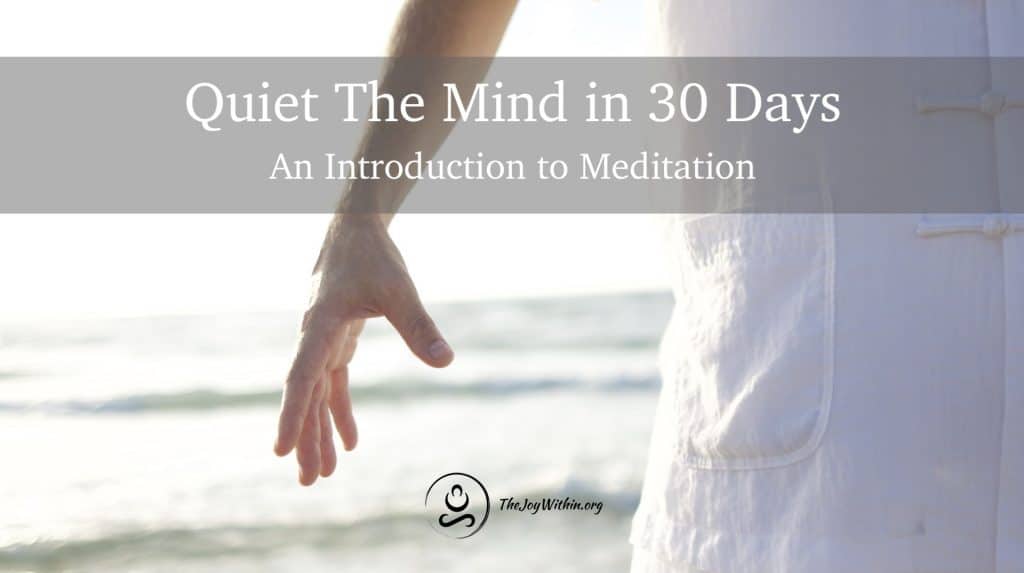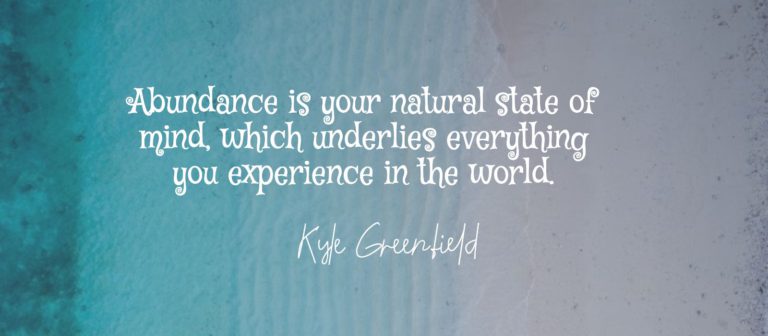Tell me if this sounds familiar…
Your friends/coworkers/coach/pretty much everyone you know has been talking about meditation, and how it is one of the single, most important habits you can develop if you want to improve your life.
So, you get up early, roll out your yoga mat, and try to cram yourself into a semi-awkward half lotus or cross-legged position.
And then you meditate.

There’s only one problem:
Nothing happens.
Your mind starts to wander. Your thoughts don’t settle down.
In fact, they seem to become even more wild and crazy.
And, after a few minutes, you start to wonder if your meditation is a waste of time.
Here’s what to do:
Understand Why Meditation is Not a Waste of Time
Firstly, if you’re starting to wonder why you’re sitting in awkward, uncomfortable silence instead of enjoying your morning coffee, you have to remind yourself of the reasons why you wanted to start meditating in the first place.
There are many, many reasons why meditation works, and study and study shows that it is a proven technique to help:
- Reduce stress
- Increase happiness
- Improve mental health
- Feel more energy
- Become more productive, and
- Live longer.
But, none of that matters if you don’t have a solid reason why you want to practice meditating.
So, take a few minutes to remember that reason, and use it as motivation to help get you past those early days when you haven’t yet seen the results kick in.
Click here to learn more about the benefits of meditation.
It’s OK For Your Mind to Wander…In Fact, It’s Normal.
Most people think that when you meditate, you shouldn’t think.
But, the reality is: there is no way you’re going to sit to meditate once or twice, and magically find that your mind stops running.
In fact, most new meditators find they feel like they think more actively when they start meditating.
That’s because – as you first start to pay attention to your thoughts, you end up realizing you think way more than you thought you did. Those “extra” thoughts become more obvious during meditation.
So, if you can’t stop thinking, try these tips, or simple accept that meditation is a skill, and a bit of a process, so don’t get discouraged if you don’t think you’re doing it perfectly right out of the gate.
The more you can allow yourself to sit with those thoughts, and to accept that your meditation practice is ok, exactly as it is, the better an experience you will have — and the more relaxed and focused you will feel.
Related Post: How To Focus During Meditation.
Know That It Gets Easier with Practice
In addition to learning to accept your practice, in whatever form it might take, I also think it helps to know that meditation gets easier the more you practice it.
At first, it may seem like you’re wasting your time, and you might not know what you should be doing, or exactly how to go about it, and that’s ok.
Like any skill, mastery doesn’t happen overnight.
Just like learning a new language, or practicing a new musical instrument, it takes time to build the habit of meditation.
Some days will feel easier than others…especially when you’re just starting out.
But, with time, and a little patience, you can use your meditation practice to tune-in to your inner joy, on command, and to become calm and peaceful, almost instantly.
Learn to Meditate The RIGHT Way.
Lastly, while I’m a firm believer that there is no “wrong” way to meditate, I do think that there are certain techniques and practices that will help you to shorten the time it takes to start seeing results with your practice.
I believe that everyone should follow along with a guided meditation program when they first start (and even for the first few years of your practice), because it is much easier to relax your mind when you give it clear, simple directions on what to think, and how to become quieter.
This means that following a guided program helps you to get to your first breakthroughs much more quickly. You’ll be able to tune-in to that sense of inner joy more quickly, and you’ll be better equipped to feel calmer and more relaxed.
If you want to learn more, I recommend you check out this guide to getting started with meditation, or click here to enroll in Quiet The Mind: A 30 Day Introduction to Meditation.





